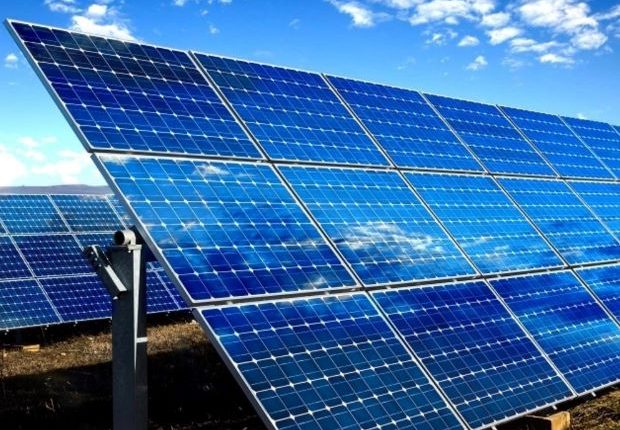COLOMBO – Sri Lanka’s cabinet has approved the signing of a power purchase agreement (PPA) with the United Solar Group of Australia for a 700mw solar power project with a 1,500 MWh battery energy storage system.
Minister of Power and Energy Kanchana Wijesekera announcing the cabinet approval in a social media message on Monday (11) said, the solar power project will be installed on the surface of the Poonakary Tank in the Kilinochchi District, with a foreign direct investment of 1,727 million US dollars.
The tariff at which THE PPA is to be signed was not disclosed.
However, battery storage requires more investments and stable power can be provided for the grid.
The Cabinet, in September, approved in principle and subject to evaluation, the project proposal presented by United Solar Energy Sri Lanka, the local arm of the company.
“The project also saves around 750,000 tonnes of CO2 emission per year which is about 4% of total annual emissions a year in Sri Lanka,” said Sujeewa Nishantha CEO/Director of United Solar Energy Sri Lanka outlined the project components as follows:
The project components he said would include the design, supply installation, and commissioning of a 700 mw solar power plant on 288,000 precast concrete piles in the shallow areas of the Poonakary Tank about 3m above the tank bed level; design, supply, installation, and commissioning for advanced battery storage system that can absorb during the peak and store during off peak; design and rehabilitation of Poonakary Tank 10km long earth filed tank bund increasing the storage capacity of 18.5mcm in accordance with the Irrigation Department technical specifications; design and construction of 3 sluice gates to prevent and control sea water intrusion, and design and construction of 12km irrigation canal network to feed the irrigation water to over 100 acres of agricultural lands.
Nishantha said there was the possibility of providing power to India as grid interconnection between the two countries is planned.
“We have 350 million population in nearby south states of India,” he said, explaining that the future economic corridors mainly entail clean energy transmission and digital corridors. “As we are so close to India and must share the resources.”
Additionally, the project will help the socio-economic revival in the Northern Province by the inclusion of local labour.
“Certain part of the workforce is local labour. Under the original plan, we have 1,000 staff cadre and out of that 500 are skilled. Another 500 is unskilled. So 100% of the 500 unskilled will be employed from Kilinochchi,” he said, acknowledging they may need experts from overseas to install the battery etc. However, he said overall, it is a major local staff-driven project.
-economynext.com



Comments are closed, but trackbacks and pingbacks are open.